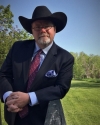- Winter 2021
Syllabus Description:
The final syllabus for Winter 2021 can be on the syllabus page, along with tips for academic success.
This course takes a panoramic view of religion and politics, focusing on several historical periods and world regions. More than an emphasis on theologies or beliefs, we will examine religious organizations and how they interact with state structures. As such, the more appropriate title for the course might be "Church & State in World History," with "church" being a generic simplifying term that includes synagogue, mosque, temple, etc. Our goal is to understand how various religious institutions, actors and values affect political behavior, and, conversely, how the political actors and institutions affect religious practice. This course will also take a "political economy" perspective to the study of religion, religious institutions, politics, and governments. The emphasis will be on how humans interact with the incentive structures in their environment. Hopefully, not only will you learn empirical content related to religion and politics, but you will pick up concepts related to "the economic way of thinking."
Given the limitations of the 10-week quarter system, we will not be able to cover all the important questions raised in the study of religion and politics around the world, nor will we cover all religious traditions equally. Please be advised of this. Such a course would only be able to address deeper theoretical issues in a superficial manner, substituting depth for breadth. Readings and lectures will be drawn largely from the Christian experience, though we will touch upon Islam and Judaism at points in the class. The intention of the professor is to provide you with a basic familiarity with the literature and, more importantly, the intellectual tools to pursue your own studies of the subject matter.
Grading will consist of two essay exams, section participation and questions, and a short analytical essay.
Textbooks include:
Witham, Larry. 2010. Marketplace of the Gods: How Economics Explains Religion. Oxford: Oxford University Press.
Koesel, Karrie. 2014. Religion and Authoritarianism: Cooperation, Conflict, and the Consequences. Cambridge: Cambridge University Press.
Gill, Anthony. 2007. The Political Origins of Religious Liberty. Cambridge: Cambridge University Press.
Berman, Eli. 2009. Radical, Religious, and Violent: The New Economics of Terrorism. Boston: MIT Press. (The 2011 paperback reprint is acceptable too.)
Kuran, Timur. 2004. Islam & Mammon: The Economic Predicaments of Islamism. Princeton: Princeton University Press.
Prof. Gill was the recipient of the UW Distinguished Teaching Award in 1999.
